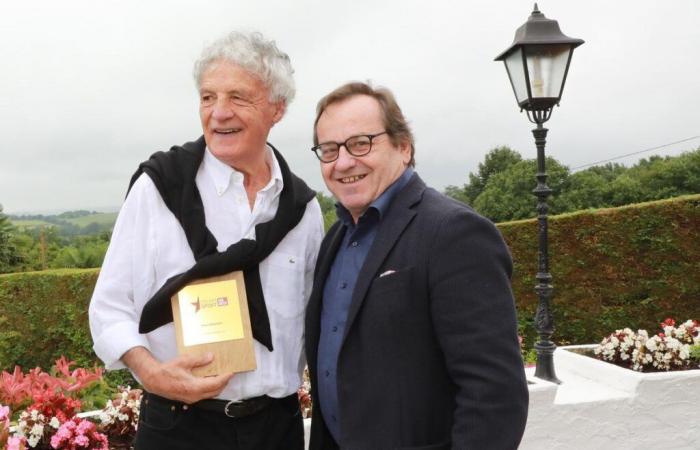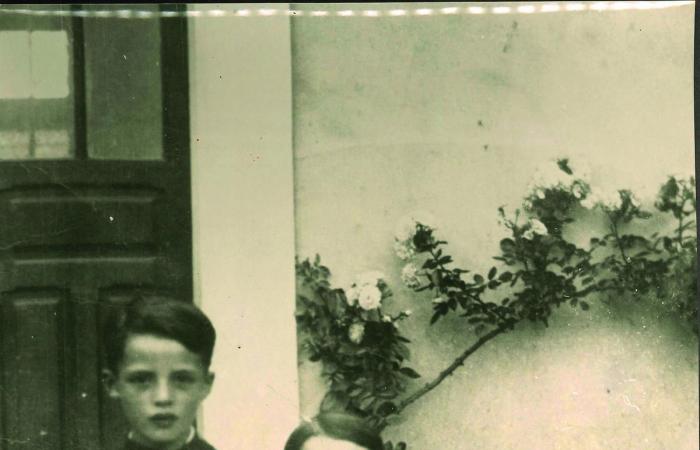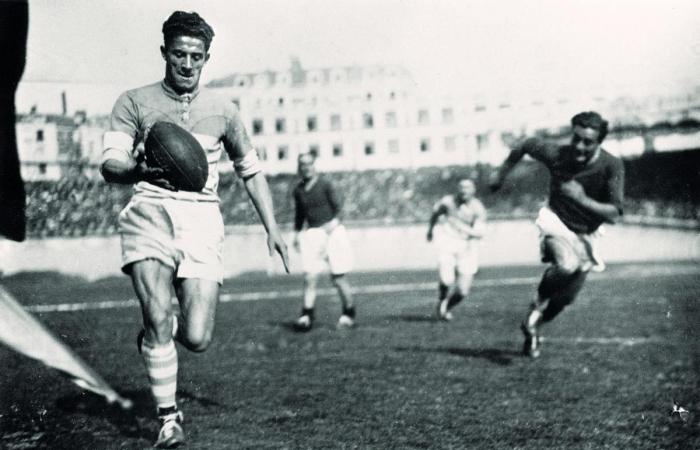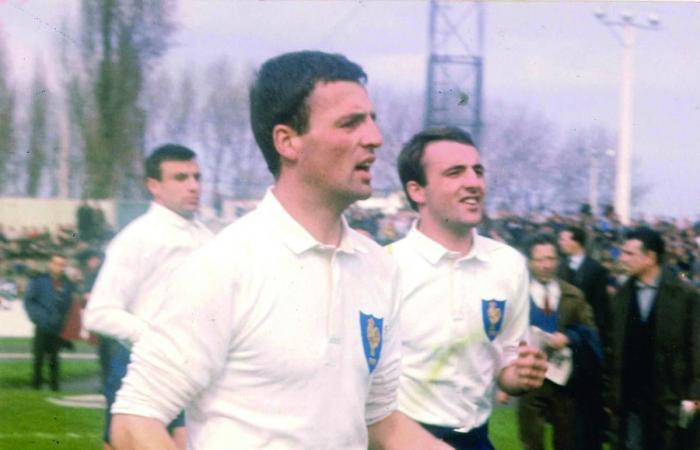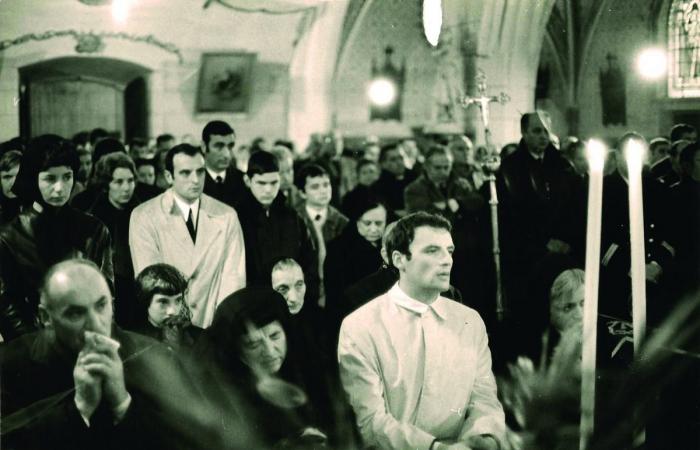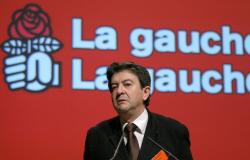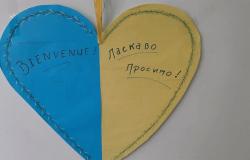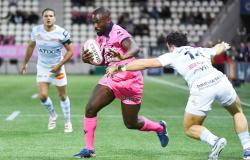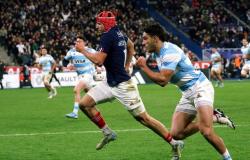This is a book that says much more than its title suggests. “The Magnificents – Their names were André and Guy Boniface” is moving in that it resurrects an entire era. That of the 1960s, when a France in the provinces, confident in the future and carefree, developed a passion for two Landes rugby players.
“André and Guy. Guy and André. The 12th and 13th. The most beautiful three-quarter center siblings in the history of rugby. Because it was them, and because it was him, Yves Harté recounts with particular sensitivity the journey of these two rugby players from Stade Montois whose talents, recognized across all fields, connected “every week with the prefecture of Landes to the nervous system of the world”, as Antoine Blondin said.
Himself of Landes origin, the retired journalist, former editor-in-chief and editorial director of the newspaper “Sud Ouest”, recalls what the child he was owes to the passes of these two rugby internationals who rocked his young years: “We cannot imagine the love they inspired. The girls found them beautiful and the boys irresistible. If, fortunately, an elder had a younger child two years younger than him, the first game consisted of playing “Boni”. »
Noble and tragic story
In this work illustrated with numerous photos, the nostalgia-tinged pen of Yves Harté avoids any detail of this noble and tragic story. We know that it was smashed against an oak tree on the side of the Saint-Sever road on the night of December 31, 1967. Guy Boniface is dead. André tried to continue living. Thanks to rugby, his friends and the permanent presence of his younger brother's soul, he lasted more than half a century before finding him again, on April 8, 2024, “with a too heavy heart”.
The good leaves
Here are some extracts from the book “Les Magnifiques”.
“We forgave Guy everything”. It’s childhood time in Montfort-en-Chalosse. Guy stands out as the most turbulent kid in the village: “He was naughty,” remembers André. One day we were given a set of croquet. The first time we played in the square, I beat Guy. Normal, with three years difference. But Guy was mad with rage. He knocked me out with a blow to the head with a mallet. When he saw me lying on the ground, he must have thought he had done something stupid. He left everything there, ran off to pick flowers in the field next door and quickly came back home: “Look, mom, I picked flowers for you.” “That’s nice,” Madelon told him. But where is André?'' ''I don't know,'' Guy replied candidly. It was only when Madelon saw me arrive, still unconscious, with a bloody forehead, carried in the arms of the butcher who had found me unconscious that she understood. But Guy was always forgiven for everything. Me first. »
Boniface family collection.
The brothers as choirboys.
Jean Dauger, the master of acting. André Boniface has just obtained his license from the Dacquoise Sports Union. He is still a junior. “A few months later, Dax organized a gala match against the Welsh from Glamorgan County and asked for reinforcements from the Bayonne star. Jean Dauger accepts. Before the match, he takes André Boniface aside. ''You're going to play second center. Leave it to me, take the balls I'll give you, and get busy running…'' For André, it's a day of consecration. Finally, he will be able to play with his idol. Jean Dauger, at 33, is at the top of his art […] Dauger fixes, passes to André Boniface who scores three tries. For the public, he is the man of the match. ''I was ashamed, he confided later. I knew what I owed to the person who passed me the ball. All I had to do was finish the job. From that day on, I only had one obsession: to play like him and to score whoever played alongside me.''
Boniface family collection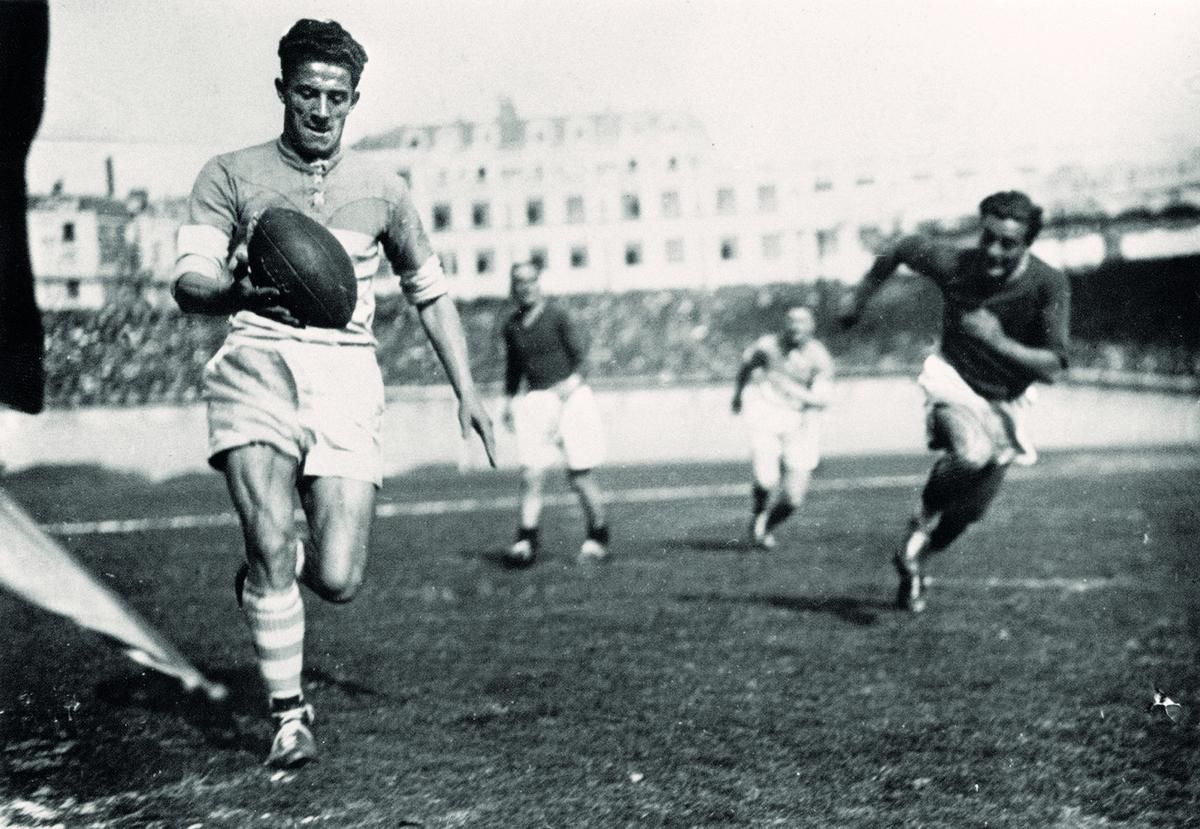
Jean Dauger.
Colombes, this pretty name. Five Nations Tournament 1965, against Wales, Guy and André are associated for the first time in the French team: “This March 27, spring is early. The grass of Colombes is soft, the ground supple. It's a summer sun, when rain has so often fallen on them. The day before the match, coach Jean Prat summoned Michel Crauste to his room, his lifelong friend, now captain of the XV of France, Jean Gachassin, the heavyweight from Lourdais, Guy and André. ''We are going to celebrate André's return, he said. Tomorrow we open the doors to attack.'' Message received. […] In thirty-five minutes, under the leadership of André, the Welsh, undefeated until then in the tournament and who came to seek a Grand Slam in Paris, were destroyed. Four tries, including two from Guy after a pass to the foot of André and a breakthrough from the same, a try from André Herrero on a pass from Guy after an attack which devours the entire field […] But how beautiful the night is! »
Boniface family collection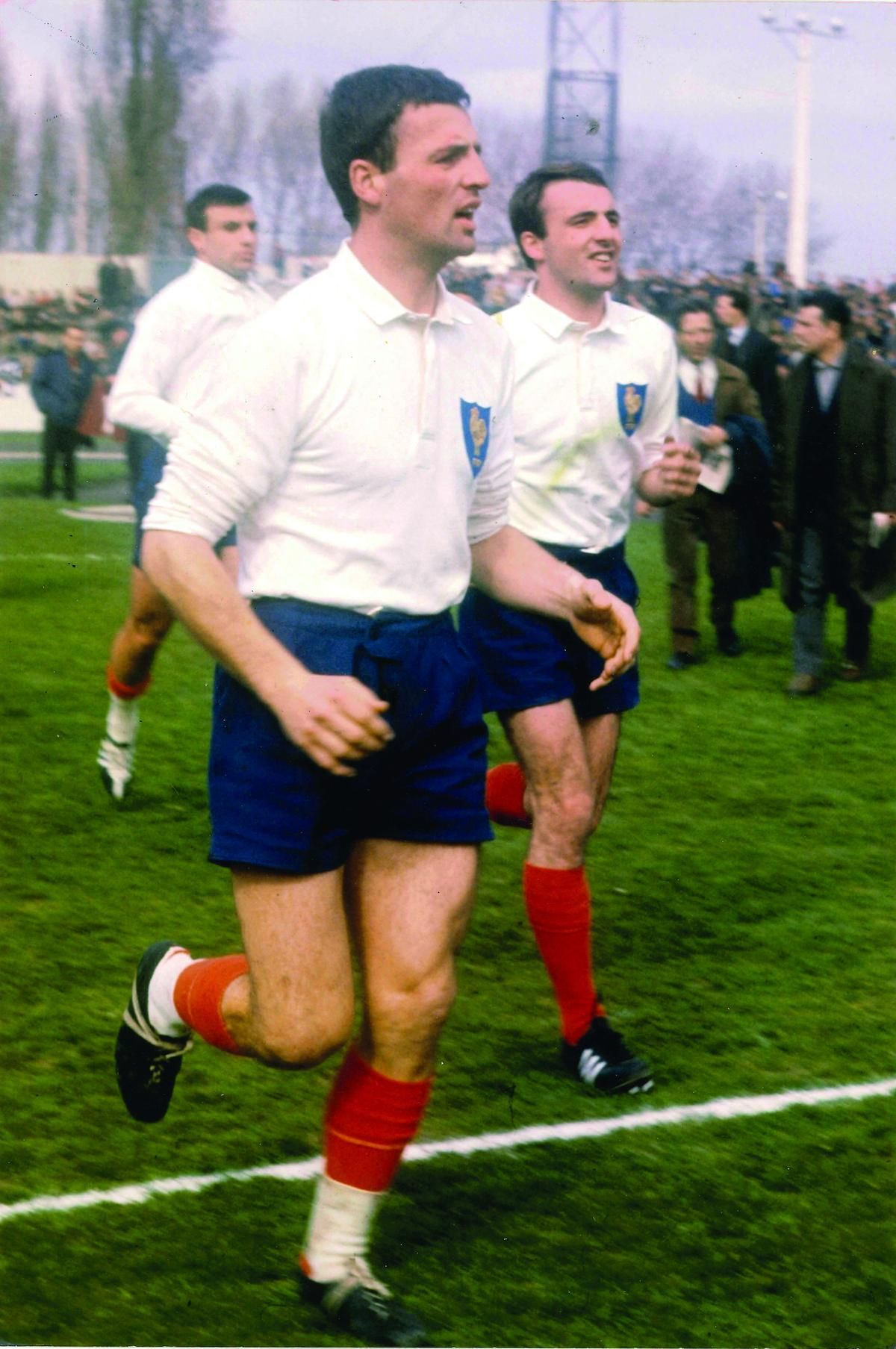
André and Guy in the French team, in Colombes.
The tree at the top of a hill. December 31, 1967, New Year's Eve. It's raining on the road to Saint-Sever. The car where Guy is located wraps around an oak tree: “So begins the long night in evening dress and suit and tie, the departure with Anny towards the Saint-Sever clinic, that of Doctor Fournier where he came to have his treat the father. André enters the church in search of impossible help. Finally at dawn, we let him see Guy. ''I only saw his face, he remembers. And he saw me too. His lips moved. I read: where have you been? Stay. It was the first time that I could no longer do anything for him.'' At the end of the night, André decides to return to Montfort, to find his parents and his children. ''I was crossing the village square. Suddenly, I felt empty, without strength, as if frozen, and the feeling that a part of me was leaving. I understood that Guy would never be by my side again. »
Boniface family collection.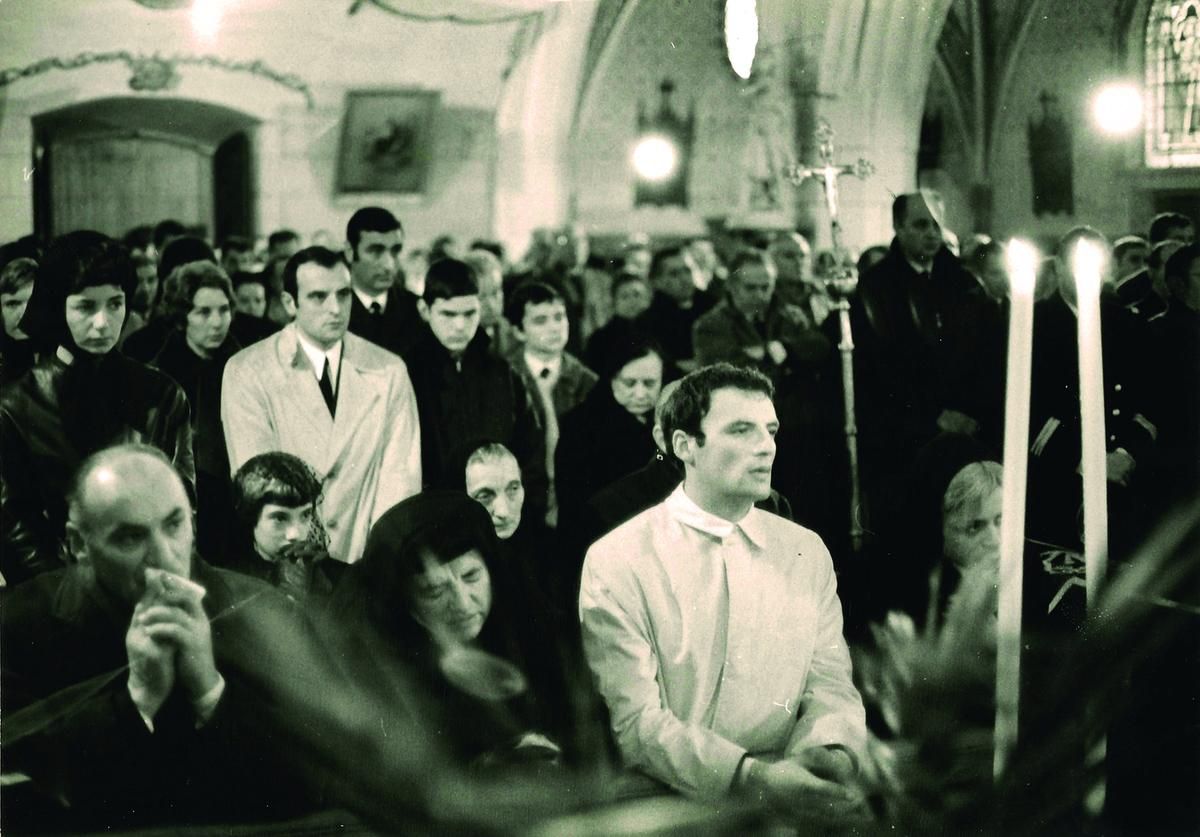
At the funeral of Guy Boniface.
“The magnificent – Their names were André and Guy Boniface”, by Yves Harté, ed. South West, 144 p., €25.

